

The Department of Electrical Engineering is celebrating its Platinum Jubilee Year 2023-24
The Department of Electrical Engineering started in 1949 to offer B.E in Electrical Engineering. Presently, the Department is offering B.E. in Electrical & Electronics Engineering. Continuing Education for employed diploma holders was started in 1963 through the four-year Part-Time Degree course in Electrical Engineering; The Post-graduate course in Electrical Machines was started in 1966. Later, in the year 1987, B.E in Instrumentation was offered. B.E. programme for Working Professionals with an intake of 30 is started in 2024.
With a view to provide diversity and industrial orientation to the Post Graduate program, currently the Department is offering M.E. courses in Industrial Drives & Control and Power Systems, which were introduced in 1971. Department also offers part time PG courses in Industrial Drives & Control and Power Systems for the working academicians and engineers. A new PG program in Power Electronic Systems is introduced in the year 2008. The Ph.D. program in Electrical Engineering is being offered since 1972.
The Department has eighteen regular faculty and three contract faculty members who are highly experienced and actively involved in research activities. The Department is also equipped with state-of-art equipment and well qualified technical staff. UG and PG Programs of the department are accredited by NBA.
To strive for excellence in education and research; meet the requirement of industry in the field of electrical engineering to serve the nation.
PEO 1: To provide students with a solid foundation in Mathematics, Sciences and Electrical Engineering which prepares students for further studies and hence research in Electrical Engineering and for a wide range of career opportunities in Industries and academics.
PEO 2: To train the students with good engineering breadth so as to comprehend, analyze, innovate and design new products in electrical domain, to provide technical solutions to real life problems and to render technical services to the needs of the society.
PEO 3: To inculcate professional and ethical attitude, creative, effective communication and presentation skills and enhanced ability to work in teams to pursue complex, open-ended investigations and research in electrical engineering for effective knowledge transfer.
PEO 4: To provide students with an academic environment aware of excellence, proactiveness, leadership positions in multidisciplinary teams, entrepreneurial talent and lifelong learning for successful professional career.
PEO 1: To prepare the students for acquiring the knowledge of different types of Industrial drives including special electric drives controlled with various power electronic converters.
PEO 2: To develop the ability to exhibit creative and critical reasoning skills to comprehend, analyze, design and implement solutions for problems in power electronic converters and drives.
PEO 3: To prepare the students for successful carrier in Industry, Academia and Research with proficiency in control of electric drives.
PEO 1: To impart knowledge to cater to the changing needs of electrical power systems.
PEO 2: To prepare students for attaining latest technology in research and development in sustainable technologies related to Power Systems.
PEO 3: To prepare students for successful career, capable of extending technical services to industry with proficiency in the field of power systems.
PEO 1: To develop professional knowledge in the field of power electronics and its applications in power sectors and core industries.
PEO 2: To develop ability to exhibit creative & critical reasoning skills to comprehend, analyze, design and implement solutions for problems in power electronic converters and special electrical drives.
PEO 3: To enhance the student capacity in pursuing research in emerging areas of power electronic systems.
DEPARTMENT OF ELECTRICAL ENGINEERING
University College of Engineering (Autonomous)
Osmania University
Hyderabad – 500007
Email: [email protected]
Tel: +91 8331997305
| Professor & Head of the Department , Director ITE&C, OU | |
|---|---|
 |
Prof. E. Vidya Sagar (Emp. ID- 49021)M.E., Ph.D.(JNTU-H) Areas of InterestsDistribution Reliability, Power Quality, Deregulated Power Systems, Smart Grid, Distribution System |
| Senior Professor | |
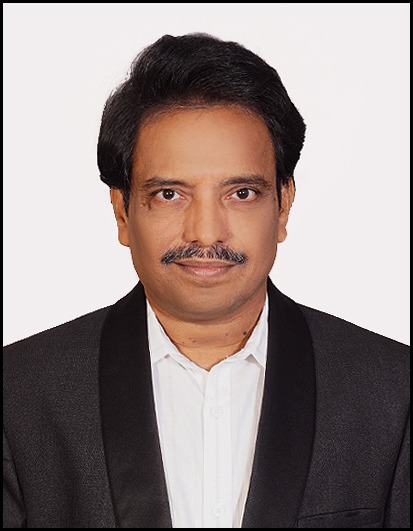 |
Prof. G. Yesuratnam (Emp. ID- 49014)M.Tech.,Ph.D.(IISc-Bangalore) Areas of InterestsVoltage Stability, Power Systems Security, Reactive Power Optimization, AI Applications to Power Systems |
| Professor & Director ERP Cell, UCE, OU | |
 |
Prof. M. Manjula (Emp. ID- 49013)M.E., Ph.D.(O.U) Areas of InterestsPower Systems, Power Quality, Neural Networks, Microprocessors & Microcontrollers |
| Professor & Director, SC-ST Cell, OU., Additional Chief Warden, UCE, OU | |
 |
Prof. B. Mangu (Emp. ID- 49016)M.E., Ph.D. (IIT-B) Areas of InterestsPower Electronics, Electric Drives |
| Professor & Dean, Development & UGC Affairs , Chairman Board of Studies , UCE,OU | |
 |
Prof. G. Mallesham (Emp. ID- 49018)M.Tech., Ph.D.(IIT-D), Post Doc(USA) Areas of InterestsSoft Computing Applications to Design /Control of a microgrid /smart grid based system, power quality problems, Renewable Energy, Power System Control, Optimization, Control, Automation and Optimization. |
| Professor | |
 |
Prof. P. Srinivas (Emp. ID- 49017)M.Tech., Ph.D.(O.U) Areas of InterestsPower Electronics, Industrial Drives & Special Electrical Machines with emphasis on Switched Reluctance Motor |
| Professor | |
 |
Prof. P. Satish Kumar (Emp. ID- 49024)M. Tech., Ph.D., FIE, SMIEEE, MISTE, MSSI Areas of InterestsPower Electronics, Electric Drives, Multilevel Inverters, Pulse Width Modulation Techniques, Renewable Energy Sources, Hybrid Power Systems, Micro Grid and Special Machines. |
| Associate Professor & Hostel Warden | |
 |
Dr. M.V. Ramana Rao (Emp. ID- 49015)M.Tech., Ph.D Areas of InterestsPower Electronics, Electric Drives & Special Machines |
| Associate Professor & Faculty Coordinator Sports | |
 |
Dr. CH. Siva Kumar (Emp. ID- 49026)M.E., Ph.D. (O.U) Areas of InterestsHybrid Power Systems, Renewable Energy Sources, Power Quality, Optimization, Smart Grid Technologies, Distributed Generation |
| Associate Professor & General Warden, Girls Hostel, UCE, PRO, UCE, OU, Chairperson, Board of Studies, UCE, OU | |
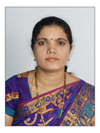 |
Dr. N. Susheela (Emp. ID- 49019)M.E. Ph.D. (OU) Areas of InterestsPower Electronics & Drives, Special Machines, Multi Level Inverters |
| Associate Professor & Faculty Advisor PhD course | |
 |
Dr. B. Sirisha (Emp. ID- 49028)M. Tech., Ph.D. (OU) Areas of InterestsPower Electronics, Electric Drives & Special Machines |
| Associate Professor & PG Coordinator, UCE, OU ,Faculty advisor M.E. (Power Systems),In charge for Dept. Exams, Dept. Website Incharge | |
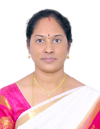 |
Dr. N. Srilatha (Emp. ID- 49027)M.E., Ph.D. (OU) Areas of InterestsPower Systems Security, Voltage Stability, Artificial Intelligent Techniq ues, Smart Grid Technologies |
| Assistant Professor & In charge for Dept. Exams | |
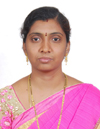 |
Dr. G.V. Naga Lakshmi (Emp. ID- 49020)M.Tech., Ph.D. Areas of InterestsElectrical Power Engineering, Deregulation of Power Systems, Distributed Generation |
| Assistant Professor & Dept. Internship coordinator | |
 |
Dr. E. Sreeshobha (Emp. ID- 49025)M.Tech., Ph.D. Areas of InterestsPower Electronics, Industrial Drives and Applications |
| Assistant Professor & Additional Chief Superintendent of Exams, UCE, OU , Dept. Time Table Incharge, Faculty advisor M.E. (IDC) | |
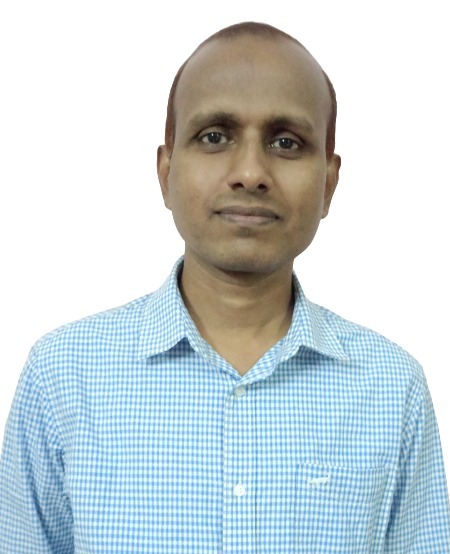 |
Dr. R. Linga Swamy (Emp. ID- 49023)M.Tech., Ph.D.(OU) Areas of InterestsPower Electronics & Drives, Multi level Inverters |
| Assistant Professor & Joint Director, Examination Cell, UCE, OU | |
 |
Dr. P. Lokender Reddy (Emp. ID- 49022)M.Tech., Ph.D.(OU) Areas of InterestsInstrumentation & Control Systems, Evolutionary Computation Techniques |
| Assistant Professor & Nodal Officer, Statistical Cell, OU Placement Officer, UCE,OU | |
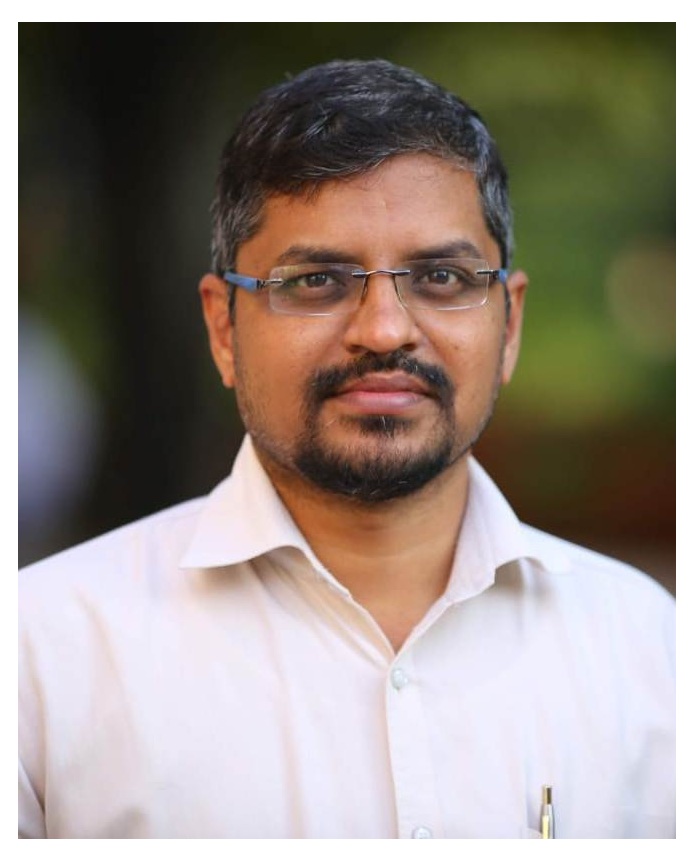 |
Dr. J. Upendar (Emp. ID- 49030)M.Tech., Ph.D (IIT-Roorkee, 2010). Areas of InterestsPower System, Power Electronics, FACTS devices, Artificial Intelligent Techniques |
| Assistant Professor & Faculty advisor M.E. (PES) | |
 |
Dr .U. Suryavalli (Emp. ID- 49029)M.Tech., Ph.D ( IITB) Areas of InterestsPower Electronics and Machine Drives |
| Assistant Professor (Contract) & Dept. Website Incharge | |
 |
Ms.G.Jhansi Rani (Emp. ID- 801788)M. Tech., (Ph.D. -OU) Areas of InterestsPower Electronics |
| Assistant Professor(Contract) & Dept. Time Table Incharge | |
 |
Dr.S.Vijender Reddy (Emp. ID- 801787)M. Tech., Ph.D Areas of InterestsElectrical Power Engineering |
| Assistant Professor (Contract) & Dept. ERP Cell coordinator | |
 |
Mr.G.Kiran Kumar (Emp. ID- 801459)M. Tech., (Ph.D. - OU) Areas of InterestsElectrical Power Engineering |
| Programmes | Full-Time / Part-Time | Year of starting | Duration |
|---|---|---|---|
| B.E. (Electrical & Electronics Engineering) | Full-Time | 1949 | 4 Years |
| B.E. for working Professionals | Part-Time | 2024 | 3 Years |
M.E. (Electrical Engineering)
|
Full-Time | 1971 1971 2008 |
2 Years |
M.E. (Electrical Engineering)
|
Part-Time | 1971 1971 |
3 Years |
| Ph.D. (Electrical Engineering) | Full-Time, Part-Time | 1972 | 5 Years |
| Name of The supervisor | Title of the project | sponsored | cost | Sanctioned Date &Duration of the project |
|---|---|---|---|---|
| Prof. B. Mangu | Design and Implementation ofControl Techniques to Mitigate High Solar PV Penetration Issues into the Grid | Science and Engineering Research Board (SERB) |
Rs 35.0 lakhs | 2022-2025 |
| Dr. P. Satish Kumar | Performance Enhancement of Grid Connected Multilevel Inverter based Wind Energy Conversion System with Low Voltage Ride Through Capability using Power Conditioners | India-Slovenia International Bilateral Scientific and Technological Cooperation Project, DST, New Delhi | Rs. 20, 80, 000/- |
Jan 2022-Dec 2024 (3 years) |
| Dr. P. Satish Kumar | Design and Development of Hybrid Wind-Solar Power Generation System using Multilevel Inverters for Grid Connected Applications | Indo-Sri Lanka Joint Research Project, Department of Science and Technology (DST), New Delhi (DST/INT/SL/P-18/2016) |
Rs.25,99,780/- | 2016(3 years) |
| Dr. P. Satish Kumar | Investigation, Implementation & Performance Evaluation of Cascaded Multi level Inverter using SVPWM algorithm | UGC – Major research project (SB/FTP/ETA-157/2012) |
Rs. 8.49 lakhs | 2012(3 years) |
| Dr. P. Satish Kumar | Performance Evaluation of Diode-clamped Multi level Inverter using Space Vector Pulse Width Modulation | Department of Science & Technology, New Delhi | Rs. 20.1 lakhs | 20/11/2013 - 19/08/2017 |
| Prof. B. Mangu | Integrated PV-Wind-Battery based Stand-alone Single-phase System for Household Application | Department of Science & Technology, New Delhi | Rs 5.0 lakhs | 29/7/2017 5 years |
| Dr. J. Upendar | Design and implementation of transmission line simulator laboratory model | Department of Science & Technology, New Delhi | Rs 5.0 lakhs | 3 years |
| Dr. B. Mangu | Grid Connected PV-Wind-Battery Based Multi-Input Transformer Coupled Bidirectional DC-DC Converter For Household Applications | TEQIP-II | Rs 1.0 lakh | 16/11/2015 1 year |
| Dr. P. Srinivas | Implementation of bidirectional DC – DC converter | Department of Science & Technology, New Delhi | Rs 5.0 lakhs | July-2017 5 years |
| Dr. M. Manjula | Mitigation of harmonics in a non- linear load | TEQIP-II | Rs 1.0 lakh | Nov-2015 1-year |
| Dr. E. Vidyasagar | Reliability Improvement of Distribution Systems using Fault Passage Indicators | TEQIP-II | Rs 1.0 lakh | Nov-2015 1-year |
| S.No. | Particulars of Equipment / Items | Amount(in Rupees) | Year of Purchase | Location of Equipment | Source of Fund |
|---|---|---|---|---|---|
| 1 | MATHWORKS Campus Wide License | 2531429.00 | 2018-19 | ALL LABS | TEQIP-III |
| 2 | Relay Protection Test Kit | 2446875.00 | 2015-16 | POWER SYSTEMS LAB | TEQIP-II |
| 3 | 7kWp HYBRID Solar Power System (Part-I of 10kWp Solar PV System) |
1575000.00 | 2019-20 | DRIVES LAB | TEQIP-III |
| 4 | 3kWp Stand Alone Solar Power System (Part-II of 10kWp Solar PV System) |
2019-20 | POWER ELECTRONIC SYSTEMS LAB | TEQIP-III | |
| 5 | Precision Digital Scope Corder | 1116067.00 | 2018-19 | POWER ELECTRONIC SYSTEMS LAB | TEQIP-III |
| 6 | Power Analyzer | 989995.00 | 2005-06 | DRIVES LAB | TEQIP-I |
| 7 | Wind Turbine Emulator | 850500.00 | 2018-19 | POWER ELECTRONIC SYSTEMS LAB | TEQIP-III |
| 8 | Solar Array Simulator Module | 840210.00 | 2016-17 | POWER ELECTRONIC SYSTEMS LAB | TEQIP-II |
| 9 | 3-Phase 3-Level NPC Multi LevelInverter | 662798.00 | 2014-15 | DRIVES LAB | TEQIP-II |
| 10 | Feeder Protection Unit | 478038.00 | 2015-16 | POWER SYSTEMS LAB | TEQIP-II |
| 11 | Digital Power Analyzer | 341869.00 | 2014-15 | DRIVES LAB | TEQIP-II |
| 12 | Solar Array Simulator Main Frame | 339150.00 | 2016-17 | POWER ELECTRONIC SYSTEMS LAB | TEQIP-II |
| 13 | DSP / Microcontroller Based Solid State AC/DC Drive System | 309930.00 | 2005-06 | DRIVES LAB | TEQIP-I |
| 14 | Switch Reluctance Motor With Spring Balance DSP / Microcontroller Based Solid State Drive System. IGBT Based Power Module |
294070.00 | 2005-06 | DRIVES LAB | TEQIP-I |
| 15 | 5 Level Cascaded Inverter Module | 198450.00 | 2016-17 | POWER ELECTRONIC SYSTEMS LAB | TEQIP-II |
| 16 | 3 - Phase Numerical Distance Relay | 177097.15 | 2016-17 | POWER SYSTEMS LAB | TEQIP-II |
| 17 | 3-Level Diode Clamped Inverter | 168800.00 | 2015-16 | POWER ELECTRONIC SYSTEMS LAB | TEQIP-II |
| 18 | 3 Phase IGBT Based Inverter Stack | 110775.00 | 2016-17 | POWER ELECTRONIC SYSTEMS LAB | TEQIP-II |
| 19 | 3 Phase IGBT Based Current Source Inverter Stack | 105500.00 | 2016-17 | DRIVES LAB | TEQIP-II |
| 20 | 3 Phase IGBT Based Voltage Source Inverter Stack | 100000.00 | 2016-17 | DRIVES LAB | TEQIP-II |
| 21. | 40 Computers | 2019- 20 | Computer lab | TEQIP-II| |